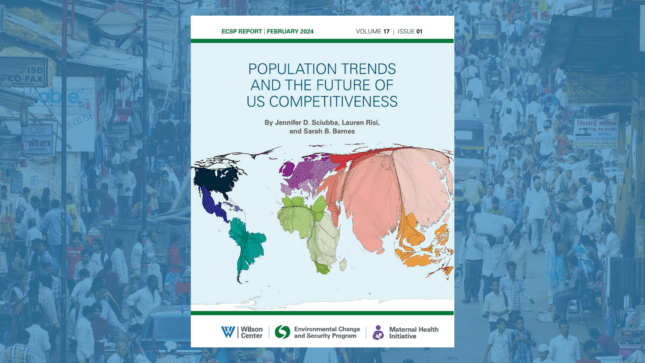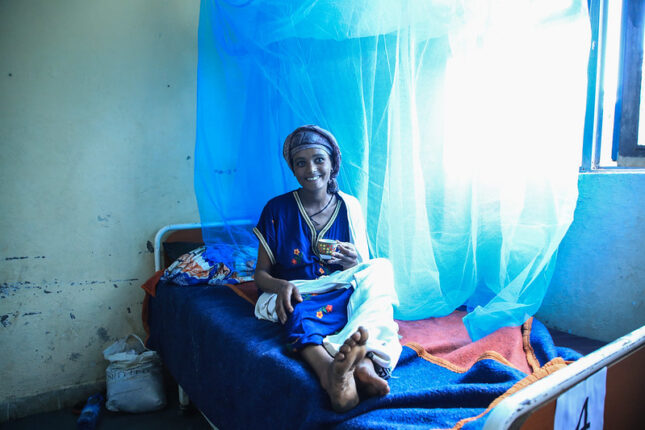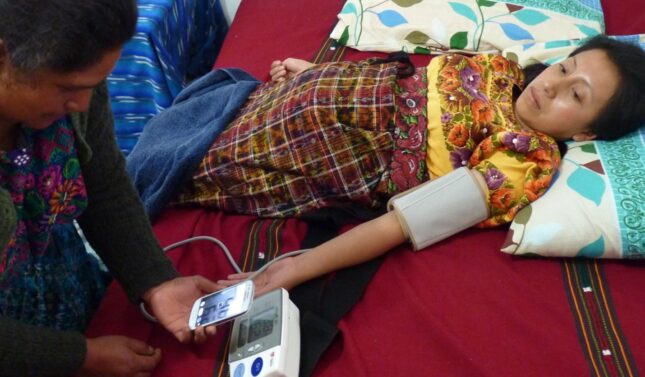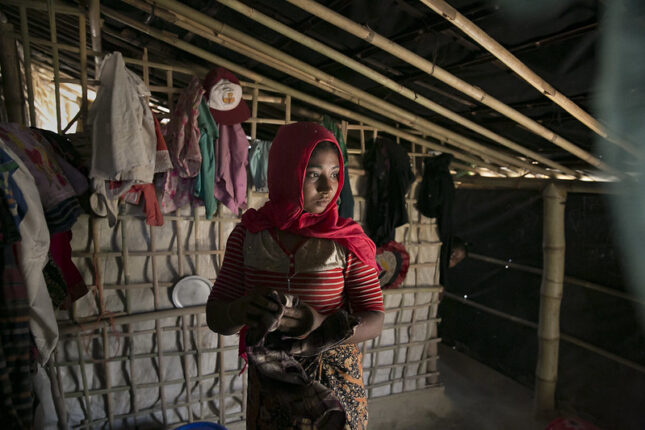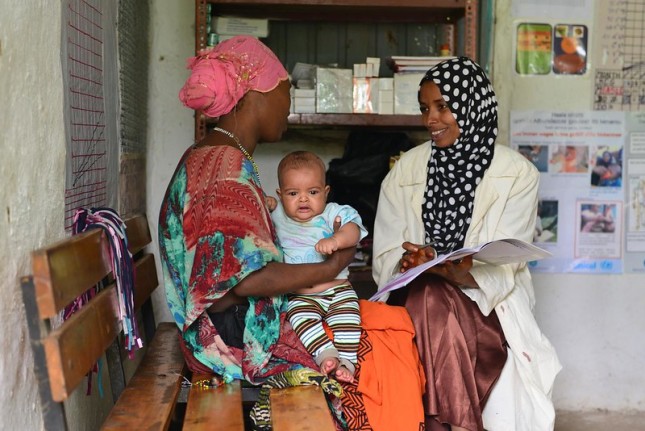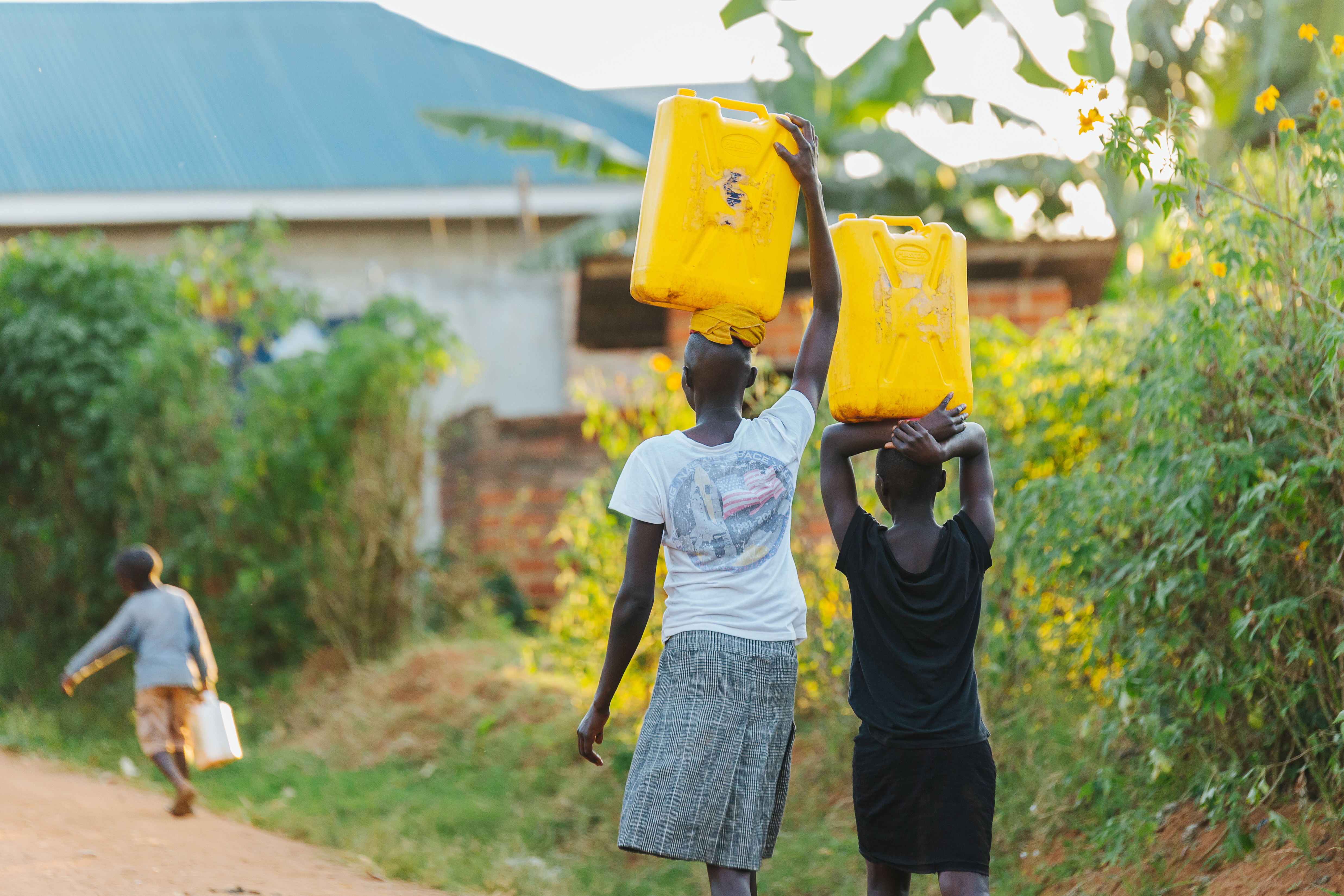-
BabyChecker: Bridging the Gap in Maternal Care, One Scan at a Time
›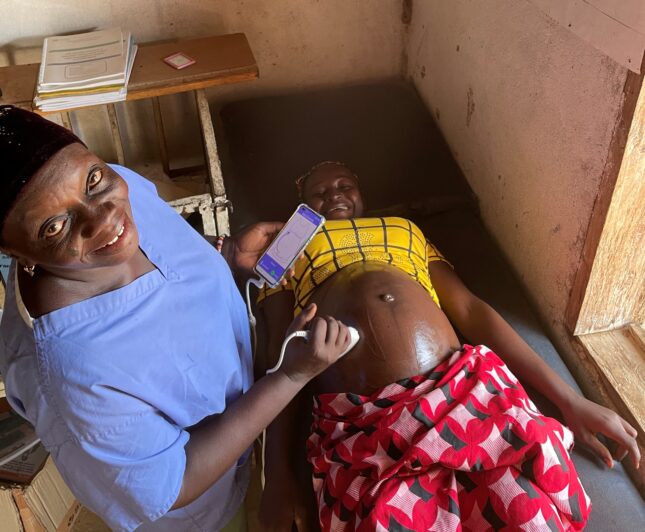
We live in a world marred by healthcare disparities. Pregnancy-related deaths and disabilities remain unacceptably high. Nearly 800 women die each day due to preventable causes related to pregnancy and childbirth, and scores more suffer from lasting disabilities. Shockingly, 90% of these preventable deaths occur in low-resource settings.
-
REPORT LAUNCH | Population Trends and the Future of US Competitiveness
›From the Wilson Center // February 5, 2024 // By Jennifer Dabbs Sciubba, Lauren Herzer Risi & Sarah B. Barnes
This article is adapted from “Population Trends and the Future of US Competitiveness”
Demographic issues intersect with a number of policy priorities on the congressional agenda, including the economy, immigration, health care and foreign policy, but how population trends influence policy outcomes is often overlooked or misunderstood. In a new report, we explore how population dynamics have changed dramatically over the last few decades, and what these changes mean for the economic and security interests of the United States.
-
Can Global Maternal Health Investments Help Eradicate Malaria?
›
The last two decades saw significant gains in reducing the incidence of malaria, but can we be doing even more to eradicate this disease? In early January 2024, a New York Times op-ed argued that millions were dying needlessly as tools to defeat malaria were within reach.
-
AI in Community Care: Can Co-design Shift the Balance in Maternal Mortality?
›
We face a global crisis of maternal mortality that extends to untenable disparities within the United States. Yet too often, the populations most affected by such health disparities are sidelined in the creation of solutions to address them.
-
New Global Health & Gender Policy Brief: Women and Girls in Wartime
›
Throughout history, women have played crucial leadership roles during wartime, even if their contributions were not always well-documented or recognized. In times of conflict, societal norms sometimes shift, allowing women to step into positions of authority that might have been traditionally reserved for men. Despite indisputable evidence of women’s leadership and bravery during conflict, however, women continue to be construed as “victims” and “passive actors”—rather than the political agents, leaders, soldiers, and visionaries that they are.
-
2023 DOT- MOM Guest Contributor Highlights
›
The Dot-Mom column of the Environmental Change and Security Program’s New Security Beat blog serves as a platform to shed light on diverse perspectives and insights from experts in maternal and reproductive health, gender equity, and peace and security. In 2023, the Dot-Mom column was marked by an incredible number of guest contributor articles.
-
The Arc | Joanita Babirye on Women’s Climate Leadership in Uganda
›
In today’s episode of The Arc, ECSP’s Claire Doyle and Angus Soderberg interview Joanita Babirye, Co-founder of Girls for Climate Action. Joanita shares her firsthand experiences with climate stressors and the broader impact of climate change on women in Uganda. But it’s also a story of hope: She tells us about her work training over 300 women in climate action and facilitating climate demonstration hubs, underscoring the role that women and girls can play as catalysts for change in the face of the climate crisis.
-
Introducing “The Arc”
›
On today’s episode of New Security Broadcast, ECSP is launching a new series called The Arc, focused on the connections between climate change, equity, justice, and identity. We will cover a wide range of topics – from food and water systems to the energy transition, migration, and climate finance – and talk with practitioners, advocates, professors, and community leaders to discover where these topics intersect with issues related to climate impacts and justice.
Showing posts from category maternal health.


